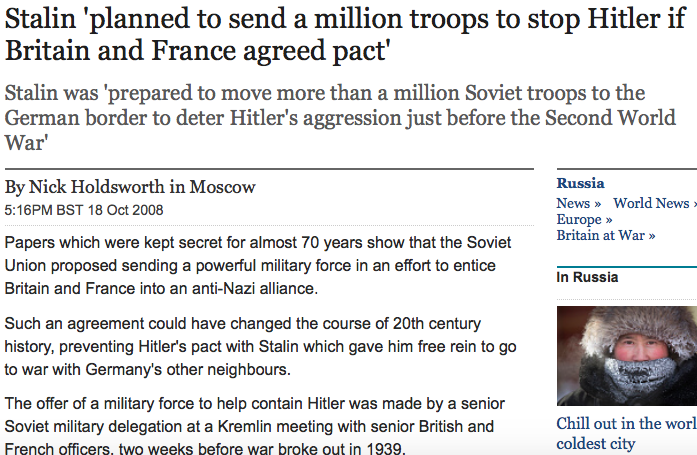Misrepresentations of American and Soviet Roles in World War II and the Cold War

Introduction
The Soviet Union contributed more than did any other nation to the defeats of Germany and Japan in World War II, but America and Britain together defeated Italy. Many prominent Western ‘historians’ white-out the Soviet roles in defeating Hitler and especially Hirohito, and they overstate the importance of America’s victories to the ultimate outcome, and ignore or underplay Franklin Delano Roosevelt’s strong rejection and repudiation of Winston Churchill’s imperialistic agenda, not only for a continuation of empires, but for a continued postwar exploitation of colonies, as being acceptable goals for the future.
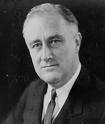 Those ‘historians’ are actually propagandists — no real historians, at all — because they fundamentally misrepresent; yet they dominate in the ‘historical’ profession, and they have produced in the US and in its allies a widespread and profoundly warped ‘history’ of the war and of its aftermath, and of Twentieth-Century history, and of our own time.
Those ‘historians’ are actually propagandists — no real historians, at all — because they fundamentally misrepresent; yet they dominate in the ‘historical’ profession, and they have produced in the US and in its allies a widespread and profoundly warped ‘history’ of the war and of its aftermath, and of Twentieth-Century history, and of our own time.
This ‘historical’ distortion has continued even after 1991 (it even accelerated) when the Cold War between the US and Russia ended only on the Russian side, but not actually on the US side. These ‘historical’ lies accelerated because ‘historians’ continue, even today, to hide this crucial fact, that the US side of the Cold War secretly continued — and still doescontinue — to try to conquer Russia. Ever since the time of America’s vile, bloody and illegal actual coup against Ukraine in February 2014 onward, Russia has been responding increasingly. This is especially so because of yet another American-and-allied aggression against a nation that has cooperative arrangements with Russia, Syria, 2012-.
The purveyors of fake ‘news’ and fake ‘history’ display the gall to cry foul and to lie and allege that Russia’s necessary defensive actions against America’s aggressions are, instead, themselves, aggressions, to which America and its vassal-nations have the right to respond, and should respond, by what then would actually be yet more aggressions (violations of international law) — instead of to quit its string of aggressions, and to apologize, not only for the aggressions, but also for the lies, that the US regime and its propagandists have been perpetrating, against Russia, and against nations that cooperate with Russia.
The reality has been that US foreign policy is, and has been, driven by one overriding and obsessive goal for a hundred years: first, to conquer any nation that’s friendly with Russia, and thereby to isolate Russia internationally; and, then, finally, to grab Russia itself. This entire US geostrategy is based upon lies.
The ‘Historical’ Lies v. The Historical Truths
According to the standard accounts, the Cold War ended on both sides in 1991, when the Soviet Union dissolved, and its communism ended, and its Warsaw Pact (the military alliance that the USSR had created in response to America’s having created the NATO military alliance against the Soviet Union) all ended.
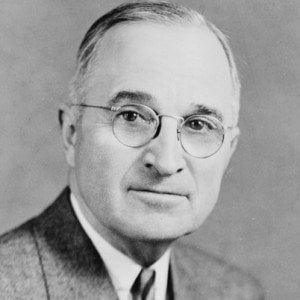 But, secretly, the Cold War continued on the US side, and with the same (and now blatantly) imperialist goal of ultimately conquering Russia and China, so as to establish the first-ever all-encompassing global empire. Whereas Franklin Delano Roosevelt had set up the U.N. so as to evolve into a global democracy of nations — a democratic federal republic encompassing all nations — his successor, Harry S. Truman quickly became deceived by Winston S. Churchill and Dwight David Eisenhower to believe that the Soviet Union was trying to take over the entire world, and so Truman promptly abandoned FDR’s vision and initiated instead the permanent-warfare US, the military-industrial-complex-ruled US, which relegated the U.N. to a secondary role, as a mere mediator for global diplomacy, not as the international lawmaker that FDR had hoped it would ultimately evolve into. FDR’s dream and intention, of establishing a system of international laws functioning as the all-encompassing global democratic federal democracy in which all nations are represented, became thwarted, almost as soon as he died, when the Deep-State US military-industrial complex that’s run behind the scenes by the controlling owners of America’s top weapons-manufacturing firms took hold.
But, secretly, the Cold War continued on the US side, and with the same (and now blatantly) imperialist goal of ultimately conquering Russia and China, so as to establish the first-ever all-encompassing global empire. Whereas Franklin Delano Roosevelt had set up the U.N. so as to evolve into a global democracy of nations — a democratic federal republic encompassing all nations — his successor, Harry S. Truman quickly became deceived by Winston S. Churchill and Dwight David Eisenhower to believe that the Soviet Union was trying to take over the entire world, and so Truman promptly abandoned FDR’s vision and initiated instead the permanent-warfare US, the military-industrial-complex-ruled US, which relegated the U.N. to a secondary role, as a mere mediator for global diplomacy, not as the international lawmaker that FDR had hoped it would ultimately evolve into. FDR’s dream and intention, of establishing a system of international laws functioning as the all-encompassing global democratic federal democracy in which all nations are represented, became thwarted, almost as soon as he died, when the Deep-State US military-industrial complex that’s run behind the scenes by the controlling owners of America’s top weapons-manufacturing firms took hold.
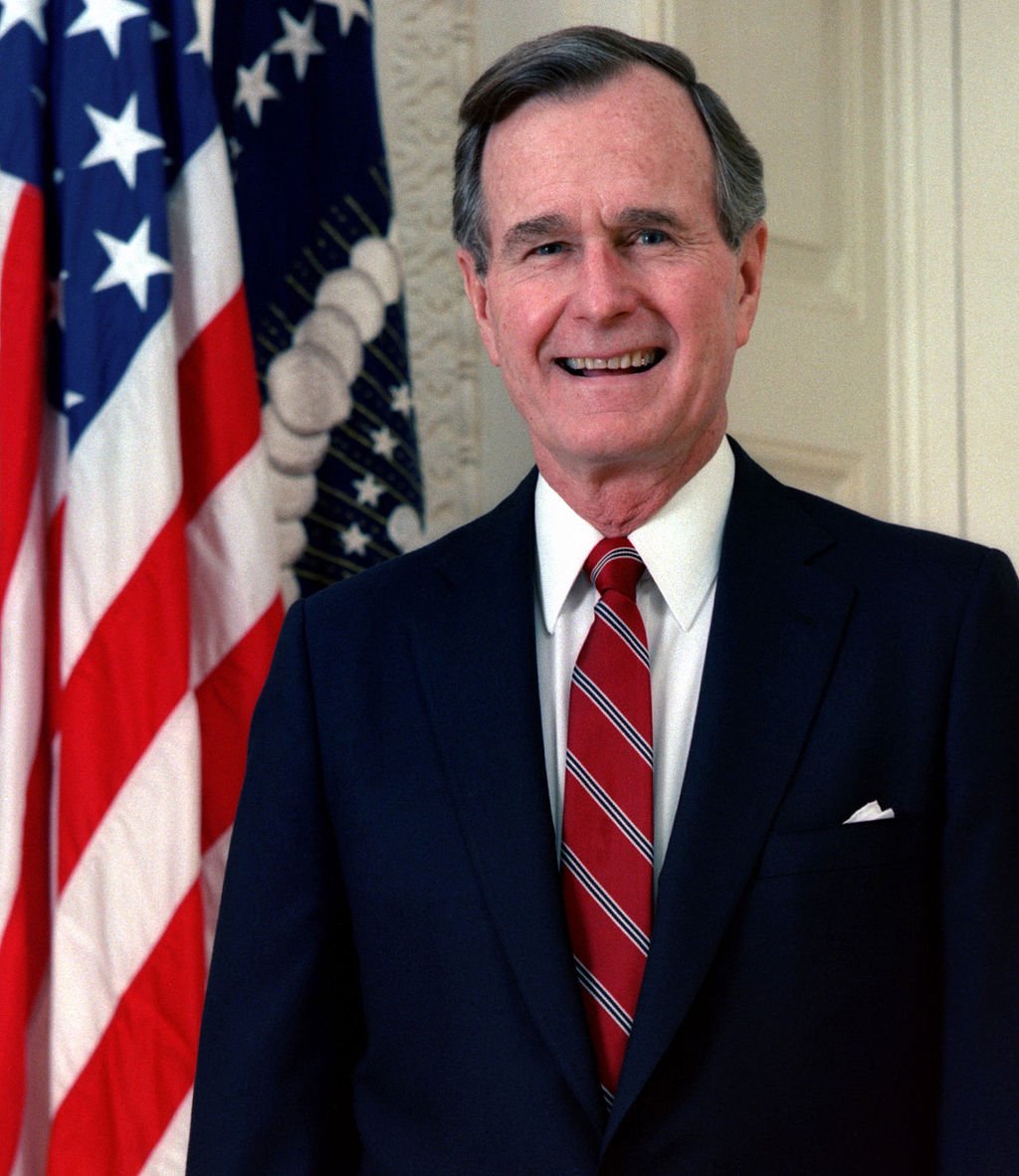 After WWII, the US Government secretly aspired — and still does aspire — to rule over the entire world, including especially over Russia and China. George Herbert Walker Bush told Robert Sheer in the 24 January 1980 Los Angeles Times and in Scheer’s 1982 book With Enough Shovels, page 29, that in a nuclear war between the Soviet Union and the US, the “winner in a nuclear exchange” would be whichever side is stronger than the other at the war’s end; and, so, for Bush, nuclear weapons didn’t exist in order to avoid a nuclear conflict, but instead in order to “win” it.
After WWII, the US Government secretly aspired — and still does aspire — to rule over the entire world, including especially over Russia and China. George Herbert Walker Bush told Robert Sheer in the 24 January 1980 Los Angeles Times and in Scheer’s 1982 book With Enough Shovels, page 29, that in a nuclear war between the Soviet Union and the US, the “winner in a nuclear exchange” would be whichever side is stronger than the other at the war’s end; and, so, for Bush, nuclear weapons didn’t exist in order to avoid a nuclear conflict, but instead in order to “win” it.
This also is the reason why, on the night of 24 February 1990, Bush secretly told West German Chancellor Helmut Kohl to ignore the promises that Bush’s team were making to Gorbachev, that NATO would not be expanded “one inch to the east” (i.e., not extended right up to Russia’s border) if Gorbachev ends the Cold War. Bush, in confidence, told Kohl “To hell with that! We prevailed, they didn’t.” And he also secretly told French President Francois Mitterrand to pursue no “kind of pan-European alliance” (i.e., alliance that includes Russia) because, actually, total conquest of Russia remains the US-and-allied goal.
This view — that the goal is control over Russia — became firmly established in US Government policy by no later than 2006 when Bush’s son was the President and the phrase “Nuclear Primacy” (the ability to “win” a nuclear war against Russia) became used in order to refer to America’s geostrategic goal.
Part of that scam by ’The West’ (the emergent American empire) has been the ongoing ‘historical’ lie that the Allied victory in WWII was mainly an American and British affair, and not mainly a Soviet one. Another part of it is that the Soviet Union had started the Cold War; and yet a third part is that the Cold War was about ideology (communism versus capitalism) instead of about the US regime’s goal of ultimately conquering Russia and China so as to achieve the world’s first and only full global and unchallengeable empire.
The excuse for all of this was always the allegation that global empire is Russia’s goal and that the US therefore needs to win the nuclear war when it ultimately happens. But Russia, and its prior USSR, always did maintain, and still does maintain, as actual Government policy (not just mere verbiage, such as in America after 1980) the belief in “MAD” or Mutually Assured Destruction — the idea that any nuclear war between the two superpowers will destroy the entire planet and therefore produce no winners whatsoever — no winner but only nuclear winter — regardless of which side might temporarily emerge the stronger while nuclear winter and resulting global famine soon destroy all life on Earth after that nuclear exchange.
Russia is not (like America is) aiming to take over the planet. The fact that the US regime is trying to take over the planet has shocked even America’s top geostrategic scientists. The ‘historians’ hide all of this, so as to continue the myth that in the US-Russia relationship, Russia is and has been the aggressor, and America the defender — instead of vice-versa, which is, and has been, the historical reality.
A rare, early, excellent, and honest, Western history of the immediate post-WW-II world, was the libertarian William Henry Chamberlin’s 1950 book America’s Second Crusade. Its earnest author — a disenchanted former socialist who once had trusted Stalin’s goodwill but was dismayed now to find Stalin to be America’s enemy as well as an unforgivable tyrant to the nation he led — opened by saying
“My book is an attempt to examine without prejudice or favor the question why the peace was lost while the war was being won.”
He was struggling to understand how and why and when the Cold War started, but unfortunately, some key documents, in order to become enabled to understand that, had not yet become public. A crucial passage in his book that reflected state-of-the-art historical writing in 1950 but certainly not today, asserted:
Stalin’s diplomatic masterpiece was his promotion, through his pact with Hitler, of a war from which he hoped to remain aloof. [FALSE: Stalin knew that the Soviet Union was Hitler’s main target to attack, and he was terrified of that]
This attractive dream of watching the capitalist world tear itself to pieces and then stepping in to collect the fragments was shattered by Hitler’s attack in June 1941. [FALSE: that war between USSR and Germany was already baked-in in 1939; and it was Stalin’s nightmare — not his “dream.”]
Author Chamberlin thought that Stalin had made with Hitler the 1939 Ribbentrop-Molotov Pact because Stalin had wanted to join with Hitler in taking over the entire world — i.e., for aggression, instead of for defense; i.e., instead of so as to protect the USSR from becoming invaded by Hitler (which defensive motivation actually is what obsessed Stalin). Chamberlin thus wrote approvingly of “Churchill’s scheme which would have limited the extent of Soviet conquest.” Chamberlin thought that the ideological conflict (to the extent that there actually was one in the Cold War) was between communism versus capitalism, not between fascism versus non-fascism (which it was, and still is).
Here are the facts, which have been revealed by the making-public of archives as of 2008 and subsequently:
On 18 October 2008, Britain’s Telegraph bannered “Stalin ‘planned to send a million troops to stop Hitler if Britain and France agreed pact’” and buried the core revelation, that Stalin prior to the Ribbentrop-Molotov Pact recognized Hitler’s determination to conquer the Soviet Union and he had, on 15 August 1939, urged Britain’s Prime minister Neville Chamberlin to accept the USSR as an ally in their mutual war to defeat Hitler; but Chamberlin refused, and so Stalin reached out to Hitler for an agreement with him to a dividing-line between those two countries’ (Germany’s and USSR’s) essential areas of control for each one’s national security.
Screenshot of Telegraph article, 18 October 2008
Poland especially was a worry to both of them, because Poland had had territorial conflicts with both Germany and the Soviet Union. Thus was signed on 23 August 1939 the Ribbentrop-Molotov Pact, which split Poland between both countries.
The Versailles Treaty at the end of WW I had handed to Poland what had been German territory that through most of prior history had been Polish territory. Hitler was elected into power in 1933 vowing to abandon that Treaty and to restore, to German rule, that part of Poland.
As regards Poland’s conflicts with Russia: Poland had invaded Moscow during 1605-18, before Russia responded by both military and diplomatic means to virtually conquer Poland into becoming a colony of Russia, which it remained almost uninterruptedly until 1939, when the Hitler-Stalin agreement — the Ribbentrop-Molotov Pact — restored part of Poland to the Soviet Union, but handed the other part of Poland to Germany.
Stalin, having been spurned by Chamberlin (who held his own imperialistic intentions — he was as imperialistic as were the fascists: Hitler, Hirohito, and Mussolini), had actually no other option in 1939 than to reach a peace-agreement with Hitler, so as to avoid having the Soviet Union become swallowed up by the capitalist countries — first by Germany, and then by whatever countries would finally win the coming World War (presumably, likewise Germany).
This is why Chamberlin’s claim that Stalin’s “dream” of imperialist expansion “was shattered by Hitler’s attack in June 1941” is false: Stalin’s necessity for the USSR to be granted enough time, to prepare for Hitler’s Operation Barbarossa invasion against it (which ended up starting on 22 June 1941), caused the Ribbentrop-Molotov Pact to become signed on 23 August 1939, which signing sparked both of its signatories to promptly invade Poland and start the active phase of WWII on 1 September 1939, both countries invading Poland. FDR didn’t hold that agreement against Stalin, but instead against Chamberlin, who really hated Russia and virtually forced Stalin into that Pact.
Chamberlin’s goal wasn’t to get the Soviet Union onto Britain’s side but instead for a war between the Soviet Union and Germany to weaken both of them enough for a UK-US alliance to take over both of them, and, ultimately, the world. FDR got Churchill to agree to a “United Nations” in which there would be an international democracy of nations and all military weapons and enforcement of General Assembly laws would be possessed and enforced only by “the Big Four” of US, UK, USSR, and China, but Churchill balked at including China because he wanted to retain control of his eastern vassal-nations.
FDR agreed instead to each of the Big Four enforcing U.N. laws only within its own neighborhood, so as to prohibit friction between the Big Four — and China would enforce in East Asia and Western Pacific, which meant Britain’s freeing India, Burma, Malaya, and some other of its vassal-nations.
- The US was to enforce U.N. laws throughout the Western Hemisphere.
- The USSR was to do the same in eastern Europe and central Asia.
- The UK was to do it in Western Europe.
Initially, Roosevelt’s plan had been only for a U.N. consisting of this Big Four as “trustees” over other nations that are within their neighborhood, but he soon recognized the need for, as the Dumbarton Oaks founding document for the U.N. put it, on 7 October 1944, “Membership of the Organization should be open to all peace-loving states.” Also: “There should be an international court of justice which should constitute the principal judicial organ of the Organization.” And: “Each member of the Organization should have one vote in the General Assembly.” No international bill of rights was included, because the U.N. wasn’t to get involved in any nation’s internal affairs.
But, then, FDR died and along came President Truman, and the U.N.’s Constitution became established on 26 June 1945, as the “Charter of the United Nations”, and it dispensed altogether with that crucial distinction, and, furthermore, the Big Four became the Five permanent Members of the Security Council,
France (yet another imperialist regime) being added to the Big Four. Already, FDR’s vision was starting to become replaced by that of agents of owners of America’s ‘defense’ contractors. They needed the distinction to be abandoned so that the U.N. would become distracted away from its peace-keeping function and toward “human rights” issues that could ‘justify’ international invasions.
And thus we have today a toothless U.N., far from what FDR had intended. This is very profitable for the military-industrial complex and enables the US regime to aspire to being, as Barack Obama claimed it already to be, “the one indispensable nation”, and every other nation therefore to be ‘dispensable’ (and consequently usable for “target-practice”).
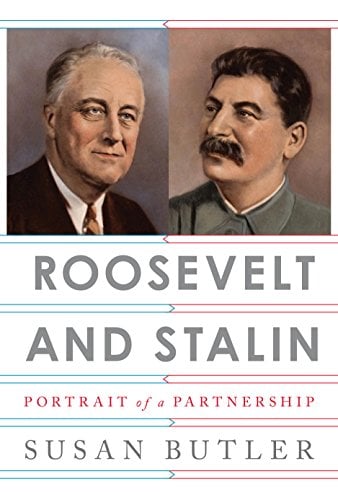 After the 18 October 2008 article in Britain’s Telegraph, another article that is a breakthrough for historians is Randy Dotinga’s superb review (and the best summary), appearing in the 5 March 2015 Christian Science Monitor, of Susan Butler’s 2015 masterpiece, Roosevelt and Stalin: Portrait of a Partnership. (Butler’s book is based on her own prior publication, by Yale, of My Dear Mr. Stalin: The Complete Correspondence of Franklin D. Roosevelt and Joseph V. Stalin.) Dotinga’s review is titled
After the 18 October 2008 article in Britain’s Telegraph, another article that is a breakthrough for historians is Randy Dotinga’s superb review (and the best summary), appearing in the 5 March 2015 Christian Science Monitor, of Susan Butler’s 2015 masterpiece, Roosevelt and Stalin: Portrait of a Partnership. (Butler’s book is based on her own prior publication, by Yale, of My Dear Mr. Stalin: The Complete Correspondence of Franklin D. Roosevelt and Joseph V. Stalin.) Dotinga’s review is titled
“‘Roosevelt and Stalin’ details the surprisingly warm relationship of an unlikely duo: How FDR and Stalin forged a bond that helped to shape history.”
Basically, what Butler has documented (in those two books) and Dotinga accurately summarizes, is that FDR and Stalin were in agreement and FDR and Churchill were not, and that FDR was consistently a supporter of the position that no nation has a right to interfere in the internal affairs of any other nation, except when those internal affairs present a realistic threat against the national security of one’s own nation.
FDR was consistently an opponent of empires, which exist not for national security but for the further enrichment of one’s own nation’s aristocracy, the owners of its international corporations. The negative reviews of Butler’s Roosevelt and Stalin at Amazon object to Stalin’s domestic policies but ignore what FDR was concerned with, regarding Stalin, which was international policies.
It would have been foolish for FDR to have gotten into disputes with his most important ally over internal Soviet matters (but American imperialists wish that he had done so). Similarly, FDR did not think that he possessed a right to interfere in Hitler’s domestic policies (including even the extermination programs), but recognized that he had an obligation to protect the United States from Hitler’s intended conquest of the entire world.
For example, FDR’s chosen mastermind for, and Truman’s designated prosecutor at, the Nuremberg Tribunals, Robert Jackson, focused mainly against the German regime’s imperialist policies, its international aggressions that really were not motivated by Germany’s national security but instead by international conquest — aggression. The Holocaust was also an important, but secondary, concern, at those tribunals. In international affairs, FDR recognized that the primary focus must be on international policies, not on intranational policies — that it must be on policies betweennations, not policies within nations. He stuck to that; America’s imperialists didn’t like that. (For them, Churchill was the hero.)
As Dotinga’s review also pointedly notes:
But FDR has a huge blind spot. Up until the very end, “Roosevelt and Stalin” virtually never mentions a man who forever annoyed the Russians by declaring in 1941 that “if we see that Germany is winning, we ought to help Russia, and if Russia is winning, we ought to help Germany, and that way let them kill as many as possible.”
This man’s name is Harry Truman. When Roosevelt dies in 1945, just weeks after the Yalta conference, the vice president knows virtually nothing about the wartime talks and has never even spent a second inside the White House’s Map Room brain center.
Truman would learn about the nuclear bomb, which spawned an intense debate in the Roosevelt Administration about whether to mention it to the Soviets, America’s supposed allies. In fact, they’d already figured out something was up.
Despite this fault line over trust with FDR, the Soviets would later mourn a safer world they believed Roosevelt would have created if he’d lived. To them, he was a dear friend who passed away too soon.
FDR knew and respected that Stalin led the main component of the anti-Nazi team. FDR had no illusions about what immense and unnecessary suffering Stalin’s domestic policies produced, but this wasn’t FDR’s business. US national security was. And FDR knew that if Hitler were to win, then America would ultimately be ruled from Berlin, and Hitler’s domestic policies, which were even worse than Stalin’s, would become also America’s domestic policies. That’s what FDR was protecting America against, and his chief international ally was Stalin — not actually Churchill (such as the fake ‘history’ — from pro-imperialists — claims).
The Democratic Party’s biggest donors chose Harry S. Truman to become FDR’s successor because they figured that he’d be able to be controlled by them, and this belief turned out to have been correct. Truman wasn’t corrupt but he was able to be fooled (self-righteously to believe what his billionaire-approved advisors told him), and this is how the Cold War began.
And that’s why the OSS and its successor, the US CIA and other agencies, protected and even imported or hired many ‘former’ committed Nazis, as soon as FDR died. America is now basically ruled posthumously by Hitler’s ideological heirs. Whereas some of America’s leaders, such as Barack Obama, probably do it intelligently, understanding where the supremacist and imperialist agenda comes from (the “military-industrial complex” or the nation’s most politically active billionaires), others of them, such as perhaps Donald Trump, might, like Truman was, be true-believers who have been simply fooled by them. Certainly Trump has loads of prejudices, which make him vulnerable to being manipulated without his even being aware of that. He believes what he wants to believe, and such a person is especially vulnerable to being manipulated. Obama, on the other hand, might be more of a realist than a fool. In either case, it’s the billionaires who now control the US Government (and see this, with more on that).
Furthermore, there were two powerful reasons why Stalin would have been getting himself into ideological trouble amongst his own communists if he had aspired to expanding Soviet control beyond the local neighborhood of adjoining (“buffer”) nations all of which were collectively surrounded by the broader capitalist world: (1) Marx himself strongly condemned imperialism; and, (2) Stalin’s main ideological competitor within the Soviet Union was Leon Trotsky, who advocated for a rapid worldwide spread of communism, versus Stalin’s position against that, which was called “communism in one nation,” and which advocated to postpone pushing for such a spread until after communism has first become an economic success within the USSR so that workers throughout the world would rise up to overthrow their oppressors. America’s Deep State knew all about the idiocy of casting Stalin as being an imperialist, but simply lied, in order to increase America’s own empire. They were, and are, brazen.
A masterpiece of historical writing, and of historical documentaries based on it, showing in a broader perspective the history of US international relations during the 20th Century, is Oliver Stone’s and Peter Kuznick’s Untold History of the United States, especially Chapter One here, and Chapter Two here. Massive though it is, it’s only truths, no lies. That’s extraordinarily rare.
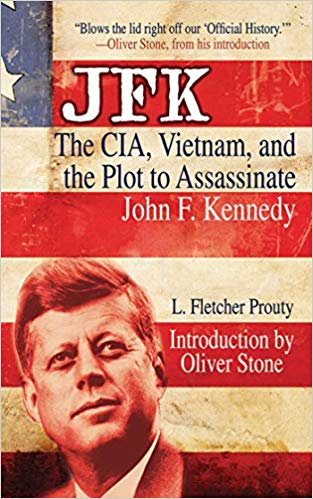 A masterpiece of behind-the-scenes history regarding US international relations, containing stunning first-person details of the period 1943-1990 (that’s up to but not including the end of the Cold War on Russia’s side), is L. Fletcher Prouty’s JFK: The CIA, Vietnam, and the Plot to Assassinate John F. Kennedy.
A masterpiece of behind-the-scenes history regarding US international relations, containing stunning first-person details of the period 1943-1990 (that’s up to but not including the end of the Cold War on Russia’s side), is L. Fletcher Prouty’s JFK: The CIA, Vietnam, and the Plot to Assassinate John F. Kennedy.
Another related historical masterpiece is David Talbot’s The Devil’s Chessboard: Allen Dulles, the CIA, and the Rise of America’s Secret Government.
All of this is history that was being hidden and lied-about at the time when it was being mentioned, at all, in the ‘news’ — and which still remains being lied-about in the ‘news’ and ‘history’ that dominates today, within the US and its empire. The only professional historian amongst those writers was Peter Kuznick. All of the others were journalists, except for Prouty, who was a participant. One can’t reasonably trust the historical profession (nor most of the journalistic profession) in the US and its empire. That’s a fact — a proven-true empirical observation — no mere speculation.
*
Note to readers: please click the share buttons above or below. Forward this article to your email lists. Crosspost on your blog site, internet forums. etc.
Investigative historian Eric Zuesse is the author, most recently, of They’re Not Even Close: The Democratic vs. Republican Economic Records, 1910-2010, and of CHRIST’S VENTRILOQUISTS: The Event that Created Christianity.


